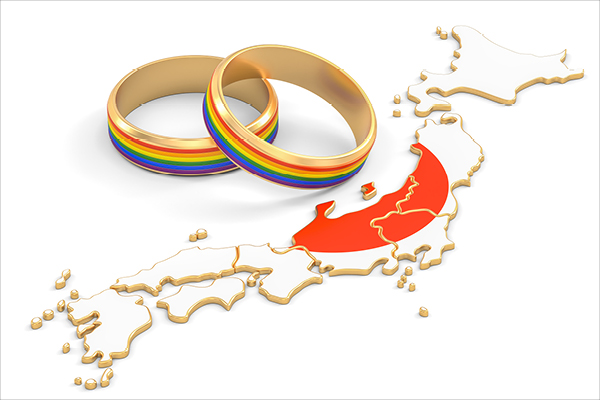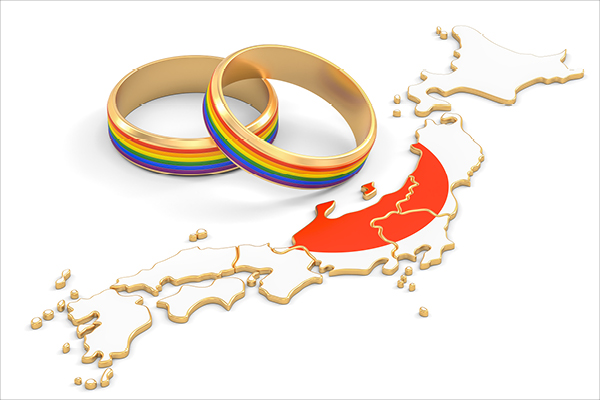
Last month, on Valentine’s Day, thirteen couples in Japan took a different approach to the typical romantic dinner out. To mark the date, they filed lawsuits.
The plaintiffs, who are in same-sex relationships, are protesting for the right to marry, suing for damages, and pushing to change future interpretations of the law, in a country where same-sex marriage is not currently recognized.
Gay couples who apply to get married in Japan, which include the couples who recently filed lawsuits, have always had their applications denied, but according to several legal experts, the constitution of Japan, which dates back to 1947, doesn’t explicitly prohibit same-sex marriage.
Scrutiny is now being placed on the contentious wording of Article 24, which states: “marriage shall be based only on the mutual consent of both sexes” and “shall be maintained through mutual cooperation with the equal rights of husband and wife as a basis,” words the couples’ lawyers argue aren’t sufficient cause to decline gay couples’ marriage applications.
According to Yoshie Yokoyama, one of the lawyers representing the couples, failing to recognize same-sex marriage breaches other areas of the law. “The constitution gives you the right to pursue happiness and equality before the law,” Yokoyama told the Thomson Reuters Foundation, adding: “Not recognizing same-sex marriage violates this.”
LAWYERS GET INVOLVED
The Valentine’s Day protesters are also supported by Japanese Big Four law firm Mori, Hamada & Matsumoto, the Japan In-House Lawyers Association (JILA) and Women in Law Japan (WILJ). Rika Beppu, former WILJ president and founding member and board member of Lawyers for LGBT & Allies Network (LLAN), told Asian Legal Business that her organization is behind the couples and will do “everything we can to support them, especially in regards to encouraging the law firms and corporates to add their voices.”
The support of Mori Hamada is something Beppu considers “extremely encouraging” as this is the first Japanese firm to publicly support marriage equality. “This is definitely a sign that things are moving in the right direction,” she said.
Attitudes in Japan towards same sex marriage do appear to be evolving. In 2015 the National Institute of Population and Social Security found that 51 percent of those polled supported marriage equality, while this year, a survey released by mega Japanese advertising firm Dentsu revealed that close to 80 percent of respondents were in favour.
In 2015 multiple Tokyo wards started offering same-sex couples special partnership certificates, providing official recognition of a relationship. A number of other prefectures have since followed suit. While these certificates help grant couples hospital access and joint apartment applications, they do not offer the full remit of benefits that a legally recognized marriage affords, such as spousal income tax deductions or inheritance rights.
The Valentine’s Day legal challenge aims to put an end to such issues and ensure true marriage equality. Beppu is positive that further change is on the horizon. “There is real momentum to gather together the will and efforts of the legal community, as well as the business community of Japan, on this issue. We hope that the public voice will get stronger and stronger, leading to widespread acceptance and a movement towards equal marriage rights in Japan,” she said.
To contact the editorial team, please email ALBEditor@thomsonreuters.com.


